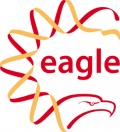| Please visit our ***NEW*** OBF/BOSC website: https://www.open-bio.org/ |
-
Difference between revisions of "BOSC 2013"
(→Important Dates) |
(→Overview) |
||
| Line 19: | Line 19: | ||
== Overview == | == Overview == | ||
| − | The Bioinformatics Open Source Conference (BOSC) is a | + | The Bioinformatics Open Source Conference (BOSC) is a Special Interest Group of [http://www.iscb.org/ismbeccb2013 ISMB]. It is sponsored by the Open Bioinformatics Foundation (O|B|F), a non-profit group dedicated to promoting the practice and philosophy of Open Source software development within the biological research community. |
Open Source software has flourished in the bioinformatics community for well over a decade. When the first BOSC (Bioinformatics Open Source Conference) was held in 2000, there were already a number of popular open source bioinformatics packages, and the number and range of these projects has increased dramatically since then. BOSC covers the wide range of open source bioinformatics software packages that have been successfully developed and adopted by the community, and encompasses the growing movement of Open Science, with its focus on transparency, reproducibility, and data provenance. We welcome submissions relating to all aspects of open source bioinformatics software and open science, including new computational methods, reusable software components, visualization, interoperability, and other approaches that help to advance research in the biomolecular sciences. Two full days of talks, posters, panel discussions, and informal discussion groups will enable BOSC attendees to interact with other developers and share ideas and code, as well as learning about some of the latest developments in the field of open source bioinformatics. | Open Source software has flourished in the bioinformatics community for well over a decade. When the first BOSC (Bioinformatics Open Source Conference) was held in 2000, there were already a number of popular open source bioinformatics packages, and the number and range of these projects has increased dramatically since then. BOSC covers the wide range of open source bioinformatics software packages that have been successfully developed and adopted by the community, and encompasses the growing movement of Open Science, with its focus on transparency, reproducibility, and data provenance. We welcome submissions relating to all aspects of open source bioinformatics software and open science, including new computational methods, reusable software components, visualization, interoperability, and other approaches that help to advance research in the biomolecular sciences. Two full days of talks, posters, panel discussions, and informal discussion groups will enable BOSC attendees to interact with other developers and share ideas and code, as well as learning about some of the latest developments in the field of open source bioinformatics. | ||
| Line 27: | Line 27: | ||
[[Image:SeanEddy.jpg|140px|left|Sean Eddy]] | [[Image:SeanEddy.jpg|140px|left|Sean Eddy]] | ||
[[Image:Neylon.jpg|90px|right|Cameron Neylon]] | [[Image:Neylon.jpg|90px|right|Cameron Neylon]] | ||
| + | |||
== Keynote Speakers == | == Keynote Speakers == | ||
Revision as of 03:53, 6 May 2013
The 14th Annual Bioinformatics Open Source Conference (BOSC 2013) will take place July 19-20, 2013, in Berlin, Germany, right before ISMB/ECCB 2013.
Important Dates
|
Overview
The Bioinformatics Open Source Conference (BOSC) is a Special Interest Group of ISMB. It is sponsored by the Open Bioinformatics Foundation (O|B|F), a non-profit group dedicated to promoting the practice and philosophy of Open Source software development within the biological research community.
Open Source software has flourished in the bioinformatics community for well over a decade. When the first BOSC (Bioinformatics Open Source Conference) was held in 2000, there were already a number of popular open source bioinformatics packages, and the number and range of these projects has increased dramatically since then. BOSC covers the wide range of open source bioinformatics software packages that have been successfully developed and adopted by the community, and encompasses the growing movement of Open Science, with its focus on transparency, reproducibility, and data provenance. We welcome submissions relating to all aspects of open source bioinformatics software and open science, including new computational methods, reusable software components, visualization, interoperability, and other approaches that help to advance research in the biomolecular sciences. Two full days of talks, posters, panel discussions, and informal discussion groups will enable BOSC attendees to interact with other developers and share ideas and code, as well as learning about some of the latest developments in the field of open source bioinformatics.
Please spread the word about BOSC--all are welcome. On Twitter, follow @BOSC2013 and use hash tag #bosc2013.
Keynote Speakers
This year's keynote speakers will be Sean Eddy of the Howard Hughes Medical Institute's Janelia Farm, and Cameron Neylon of the Public Library of Science.
More information about BOSC 2013 Keynote Speakers
Session Topics
- Open Science and Reproducible Research -- New this year, this session encompasses the theory and practice of open science, including open notebook science, open data, transparent and reproducible workflows, and shared standards for reviewing and publishing research papers.
- Cloud and Parallel Computing -- This session focuses on approaches that use cloud and other massively parallel infrastructures for processing and analyzing large and heterogeneous biological data. We are particularly interested in solutions demonstrating how to build new or extend existing software, resources and workflows to perform at scale for "Big Data" problems.
- Genome-scale Data Management -- This session encompasses software and other tools designed for managing, exploring, and analyzing genome-level data to address research questions, including but not limited to genome assembly, variant prediction, eQTL analysis, and phylogenomic methods.
- Visualization -- Current data acquisition technologies are moving us more and more towards a "data first, hypothesis later" paradigm for scientific research. As a result, data visualization and visual analytics are of increasing importance. This session focuses on approaches for interactive as well as static visual representations of biomedical data, ranging from exploration to explanation.
- Software Interoperability -- This session covers Open Source approaches to integrating the latest bioinformatics tools. Building flexible, reproducible workflows with connected tools is essential to modern bioinformatics. The goal of this session is to investigate how we can increase tool connectivity and help communities work better together.
- Translational Bioinformatics -- This session will explore applications of biological and medical informatics to the development of personalized healthcare, therapies, and a better understanding of human health and disease. Topics include the analysis of large scale population and family sequencing data, bioinformatics methodologies for clinical research, and tools for discovering clinically useful associations in human databases. We especially welcome work that bridges the gap between research and patients, making analysis tools available and understandable for non-scientists.
- Bioinformatics Open Source Project Updates -- This session will feature short talks from ongoing projects describing their recent progress. Abstracts will be solicited from open source projects affiliated with the O|B|F (see http://www.open-bio.org/wiki/Projects), including the Bio* projects, DAS, BioMOBY, EMBOSS, and GMOD, but any other open-source project will be equally eligible to submit abstracts for this session.
- Panel: Strategies for funding and maintaining open source software
Submitting Abstracts
The deadline for abstract submissions for talks was April 12, 2013. Authors will be notified on May 6. You can still submit a poster abstract.
Sponsor
We thank Eagle Genomics, Ltd. for sponsoring three Student Travel Awards at BOSC 2012. Each student winner will receive $250 towards travel expenses. In addition, the Open Bioinformatics Foundation will grant these three students free admission to the conference.
Complementary Registration
In addition to the student awards, the Open Bioinformatics Foundation will offer free admission to several other people whose abstracts are accepted for talks. Please send us a letter explaining why you are seeking free registration for BOSC. Decisions will be made by the BOSC organizing committee and announced on May 8, 2013.
BOSC Organizing Committee
Chair
- Nomi L. Harris (Lawrence Berkeley National Laboratory)
Members
- Jan Aerts (Katholieke Universiteit Leuven)
- Brad Chapman (Biopython developer; Harvard School of Public Health)
- Peter Cock (Biopython developer; James Hutton Institute)
- Christopher Fields (National Center for Supercomputing Applications)
- Jeremy Goecks (Emory University)
- Hans-Rudolf Hotz (Friedrich Miescher Institute for Biomedical Research)
- Hilmar Lapp (National Evolutionary Synthesis Center)
Ex Officio (Members of the O|B|F Board)
Previous BOSCs
- BOSC has been held yearly since 2000.
- BOSC 2012 took place in Long Beach, California, in July 2012.
- Information about the first 13 BOSC conferences
Contact Us
- Follow BOSC on Twitter: @BOSC2013, #bosc2013
- If you'd like to join the mailing list for BOSC-related announcements, including the call for abstracts and deadline reminders, please subscribe to the Bosc-announce list. This list has low traffic, and your address will be kept private.
- If you have questions about the conference, or would like to volunteer to help out, please contact the organizers at bosc@open-bio.org.



